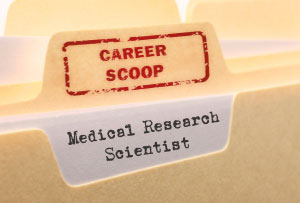 In a nutshell, what do you do?
In a nutshell, what do you do?
Study the detrimental effects of asbestos on cells and how it can cause lung cancer. We grow lung cells in a dish, add asbestos and try and measure changes in the way cells grow and how fast they die and what genes they express…
After that we add a ‘drug’ we are developing, to see if the cells are protected from the asbestos, by the drug. This could prevent people getting sick from inhaling asbestos in the mines or construction sites…
Why did you choose this career?
I decided to become a scientist during high school, where I enjoyed Biology as my favourite subject. I was good at this subject and found it easy and interesting compared to Maths, Economics, Languages etc.
What path did you take into it?
I completed a Bachelor of Science at university and looked for a job. I was lucky to be offered a role in a small Biotechnology company that was researching a treatment for prostate cancer.
What, in your opinion, is the best bit of being a Medical Research Scientist?
The best part of my job is working in the laboratory and the challenges of potentially curing a disease that affects many humans world-wide. It is fun to do experiments when you don’t know what the result will be, and discovering new things.
Every job has its downsides. What do you think are the worst bits?
The worst part of my job is that sometimes when things don’t work, the reason is unknown. The success rate of projects that aim to treat / cure disease is very low, and it is a very difficult and sometimes frustrating process.
Is it what you expected when you first started out?
It is mostly what I expected but I was unaware how long it can take to prepare for and perform a single experiment… some things may take weeks to complete. It is also a lot more complicated than I first thought while I was at school!
What do the public least understand – or mistake – about what you do?
Most people seem to think that being a scientist is a very glamorous job to do, with lots of exciting experiments where things change colour or shape, and being able to see microscopic things is fun…
Yes, it can be fun but there is much more time spent at a desk, in front of a computer, reading and reading and reading in an attempt to understand the ‘nuts and bolts’ of the problem that you are trying to solve.
What kind of people tend to do well in this kind of career?
The people who do well at this job are very patient. They also need to have an open mind and look at things objectively – without any pre-conceived ideas or vested interest.
Someone who is naturally curious about the way things are put together and the way that they work. Successful scientists do things ‘just to see what happens’ and are able to explain things based on fact and what is proven… not what they ‘think’.
Finally, any advice you’d offer to people looking to get into this line of work?
My advice is to read, read and read some more. Studying the old famous scientists like Charles Darwin, Isaac Newton and Louis Pasteur etc can teach you a lot about scientific fundamentals and learn about pure experimentation. Look around you in nature and on the street and ask yourself ‘Why is it so?’



